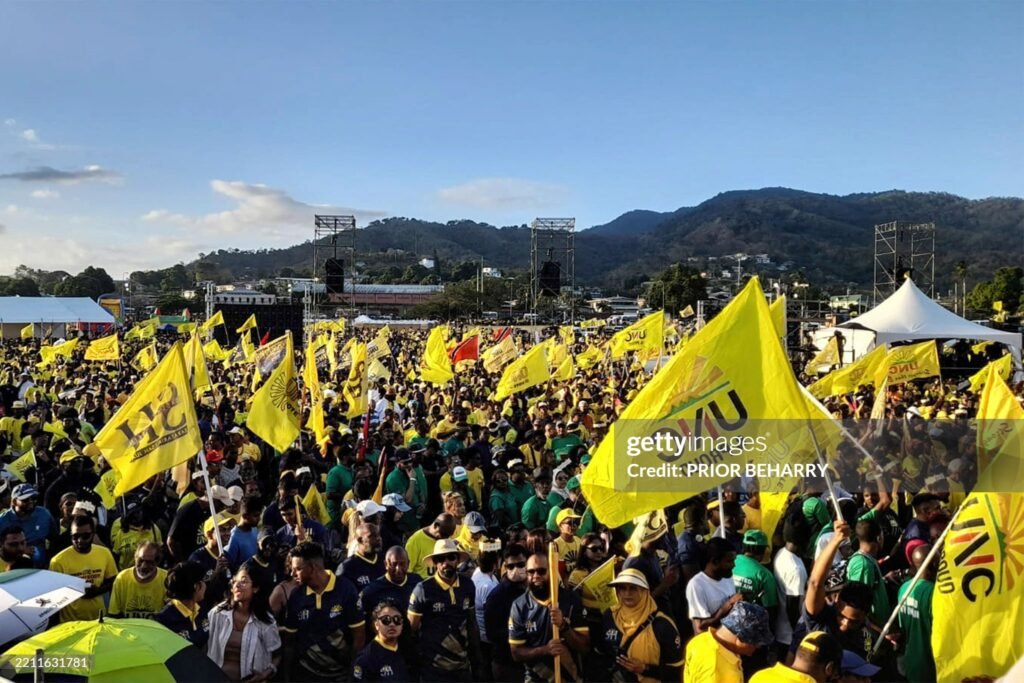[ad_1]
Information Americas, NEW YORK, NY, Mon. Could 12, 2025: Basic elections are constitutionally due in a number of Caribbean international locations in 2025. Latest modifications in authorities have already taken place in Anguilla, the Cayman Islands, and Trinidad & Tobago, whereas Belize, Bermuda, and the Turks and Caicos Islands have seen no shifts in management.
Nonetheless to return this yr are elections in Curaçao, Jamaica, Guyana, St. Vincent and the Grenadines, and Suriname. In every of those jurisdictions, voters will face a pivotal query: Ought to they maintain the present management, or is it time for a change?
Many of those governments have navigated numerous challenges throughout their respective tenures. These embody the far-reaching results of COVID-19, growing gun violence, the scourge of medicine, playing and the complexities of drug warfare. Pure disasters, local weather change and the push for financial diversification compound this checklist.
I just lately mentioned the significance of getting a parliamentary opposition to maintain a democratic authorities in test. To attain this goal, I examined the benefits and drawbacks of the 2 electoral methods: First Previous the Put up, (FPP) and Proportional Illustration.
My cousin, Patrick Cozier, provided insightful commentary on the matter. He noticed, “The FPP creates disparity, however a full Proportional Illustration system has its challenges. Firstly, who represents the constituencies is a vital a part of how the system works. Secondly, it permits events to pad the checklist of most popular candidates with some who would in any other case be unelectable. Thirdly, it will probably make for too marginal authorities.”
He continued, “The Barbados Democratic Labour Occasion skilled marginal authorities in 2013, which hamstrung the Prime Minister from altering cupboard and even disciplining any member of parliament as a result of the ire of only one MP might trigger the federal government to fall. My suggestion is to have a hybrid mannequin the place two-thirds of the seats are decided by FPP whereas a 3rd is allotted primarily based on Proportional Illustration.”
Richard Younger of Trinidad and Tobago, who has labored within the regional monetary companies sector for over 40 years, introduced one other governance concern to gentle. Following the announcement of the brand new Trinidad and Tobago cupboard, he reminded us of an article he wrote calling for Unbiased Administrators on State Boards.
He opined, “With the customary wave of board resignations following a change in authorities, a longstanding governance hole is as soon as once more uncovered. Twenty years in the past, I proposed a coverage that continues to be pressing immediately: appoint not less than one-third of state board members as unbiased administrators. This ensures continuity, accountability, and correct oversight throughout political transitions – particularly in crucial state enterprises. Whereas political patronage pressures are actual, good governance calls for a buffer of independence to guard nationwide pursuits and keep stability.”
I empathize with Richard’s coverage prescription, having served as an unbiased director in Barbados. Throughout my tenure, I chaired the Barbados Agricultural Advertising and marketing Company from 1981 to 1984 below Prime Minister Tom Adams. Beneath Prime Minister Owen Arthur, I led the Nationwide Productiveness Council from 1996 to 2001 and served as Deputy Chairman of the Barbados Nationwide Financial institution (now Republic Financial institution) from 1994 to 2003.
Vital progress was made in these organizations due to the steadiness supplied by unbiased administrators with minimal political interference. The Barbados Advertising and marketing Company had a brand new lease on life. The Productiveness Council, in flip, grew from infancy to maturity. And the Barbados Nationwide Financial institution was retrieved from close to insolvency to a thriving entity bought by the Republic Financial institution of Trinidad and Tobago in 2003 and stays profitable to at the present time.
We should construct on these examples of sturdy parliamentary opposition and unbiased directorships on state boards. These pillars should stay integral to the system to strengthen company governance sooner or later.
[ad_2]
Source link

